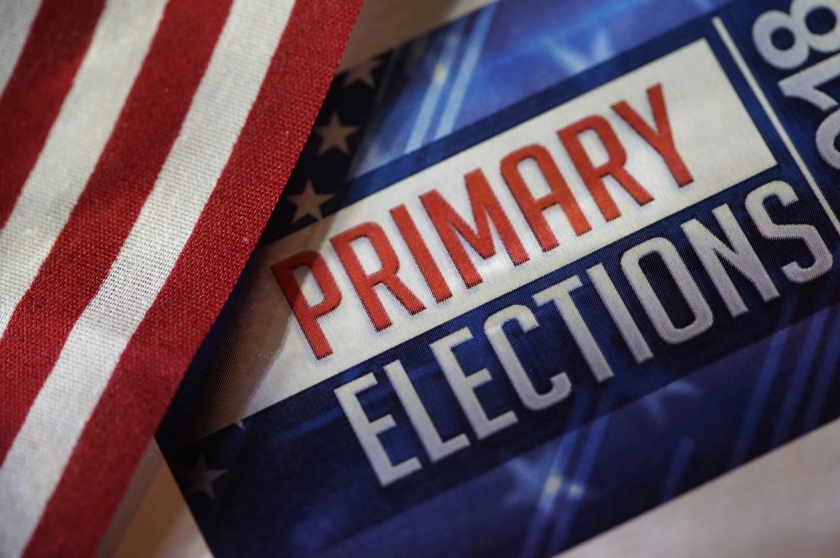
By Chapman Rackaway of the University of West Georgia
How involved should political party leaders get in primary elections? Should a President endorse a primary candidate, despite standards of public party neutrality? Party organizations were once used to determine nominees internally in caucuses or conventions, with elite leaders choosing nominees they believed best represented the party. Primary elections disrupted that process. Now the general public, even those not loyal to the party, could help choose nominees. Outsiders such as, say, Donald Trump, can contest and even win party nominations over the wishes of party leaders. In the Primary Era, party leaders and elites have generally chosen to remain publicly silent (if often supportive behind-the-scenes) during nomination contests. The involvement of President Donald Trump in Republican primaries this year is thus an important development.
Whether it’s a prominent celebrity, organized interest, or popular elected official, candidates love to get endorsements. The value of an endorsement might seem minimal, but sometimes they matter. Not all endorsements are created equal. Primary elections put parties in a difficult place: party elites, focused on general election success, value electability. When party leaders do have primary influence, as Democrats do in Presidential nominations with superdelegates, losing candidates complain of the system being “rigged” against them. Bernard Sanders’ supporters made that very complaint after his 2016 loss to Hillary Clinton. Party organizations can struggle to unify behind nominees after divisive primaries, making the safest option in primaries non-participation.
No sitting President has before endorsed candidates in party primaries. But Donald Trump’s involvement in two gubernatorial primaries – Georgia and Kansas – show us the power of the endorsement and what it means for the parties.
In Georgia, a five-way open contest for the open Republican nomination produced no majority winner and a July runoff between Lieutenant Governor Casey Cagle and Secretary of State Brian Kemp.
Cagle would normally have been considered a near-lock to succeed in the runoff against Kemp. Cagle only needed to activate the same 39% of voters and win another eleven percent among supporters of the also-rans to secure the nomination. Cagle appeared in polls to be well ahead of Kemp when one of the also-ran candidates, Clay Tippins, released a recording where Cagle admitted to playing politics with another candidate. Cagle had supported a bill he would normally not to force the candidates running from state Senate seats into a difficult vote. The Tippins recording hurt Cagle, bringing his lead down to single digits. When Trump endorsed Kemp a week before the vote, though, he surged from a near-tie to an almost forty percentage point victory.
Leading candidates in runoffs rarely lose, about as rarely as party leaders publicly involve themselves in a race. As Hans Hassell shows in “Party Control of Party Primaries: Party Influence in Nominations for the US Senate” (2015), party leadership tend to get their favored candidates nominated but do so behind-the-scenes. Trump not only endorsed a candidate but supported the candidate seen as less-comfortable with Georgia’s GOP leadership.
A day before the Kansas primary, the President endorsed another sitting Secretary of State seeking a governorship, Kris Kobach. Trump’s endorsement of Kobach was expected because Kobach and Trump have a history of mutual support. Kobach was an early supporter of Trump’s 2016 campaign, served on the President’s ill-fated Election Assistance Commission, was under consideration for a cabinet post, and has had Donald Trump Jr. host fundraisers for him.
Trump’s Kobach endorsement was noteworthy because it was given where an incumbent governor was running. Not only did Trump violate the norm against elected and party leadership insinuating themselves in primaries, Trump again went against established party leadership.
Trump’s support didn’t have the massive impact on Kobach’s vote total as it appeared to have with Kemp. Pro-Trump voters were likely already aligned with Kobach, and he won a narrow victory over incumbent Jeff Colyer.
Regardless of the outcome of the Kansas gubernatorial primary, the result for parties is the same: party elected officials are now actively engaged in primary endorsements. The norm of party neutrality in primaries has been violated. Candidates will see Kemp’s and Kobach’s success and want the President or another high-ranking party leader to endorse them in their primary. The idea of a party that waits for the public to decide their nominee and then rallies to support that nominee has been retired. Trump’s precedent may open the door to more primary endorsements, changing the role of the party in nomination contests irretrievably. How will parties respond to the increased demand for their favor during their primaries? The answer could have long-reaching implications for future primaries.
About the author: Chapman Rackaway serves the University of West Georgia as Professor and Chair of the Department of Political Science where he teaches classes in Political Parties, Political Campaign Management, Interest Groups and Lobbying, and Campaign Finance. You can also find Rackaway on Twitter and his website.
